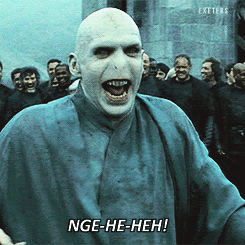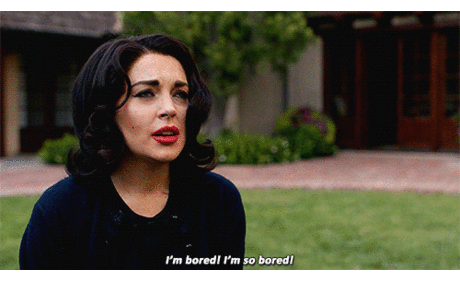Yes, the amount of snow we got in NYC last weekend is exactly as much as you heard it was.
Left Behind: Chapter 8
Back at the headquarters of what is increasingly difficult to take as the world’s premiere news organization, Buck is still trying to convince his boss that he needs to go to Europe to talk to his conspiracy theorist friend for some reason, while his boss is trying to tell him that’s dumb, and to instead cover specifically Jewish conspiracy theories. Journalism, you guys.

Steven Plank insisted Buck Williams go home and rest […] Buck was reluctant.
“How soon can I get to London?”
“What have you got there?”
Good question, Steve! I’ve been with Buck this whole time and I don’t get it either!
Buck explains about “his tip about a major U.S. financier” and “a rising European politico”, and Steve is immediately like, “Oh, you mean Carpathia”, who is a character in this book we’ve still never seen but is popping up in basically every conversation anyway. He’s basically Voldemort, except if instead of having already done all the villainy and everyone is already pretty much filled in on it before the story starts, he’s only just starting to do all that villainy and the story’s just promising us it’s totally happening, but, like, way over there, we promise.

Buck and Steve go over the details of this whole Carpathia thing, which the book is basically just saying promising is important because Buck thinks so. You wouldn’t doubt Buck, right? He’s super cool and the best ever.
“You mean Carpathia. […] [The new] President of [Romania].”
“Didn’t they just elect a leader, what, eighteen months ago?” Buck said, remembering Dirk’s tip that a new leader would seem out of place and time. […]
“I really don’t think there’s much of a story. The guy is young and dashing and all that, charming and persuasive as I understand it. He had been a meteoric business star”
It’s only like a 30% match, but…

Buck tries to convince his editor that there is so a story there, because Carpathia is pro-disarmament but his funding comes from Stonagal, a hawkish American financier. He tries his best to sell it.
“So there are mysteries.”
Somehow his editor remains unswayed.
“Buck, what could be bigger than the story you’re on?”
I love how this book about the rapture has to throw in casual reminders that the rapture is happening.
“But, Steve, this is like a freshman congressman becoming president of the United States in an off-election year, no vote, president steps aside, and everybody’s happy.”
“No, no, no, big difference. We’re talking Romania here, Buck. Romania. Nonstrategic, scant gross national product, never invaded anybody, never anyone’s strategic ally. There’s nothing there but low-level internal politics.”
Okay, book. We get it. Romania is totally not important and totally not throwing our surprise birthday party.

Editor Steve has to convince Buck that what he wants him to do is way more important.
“You’re going to be tying [international] coverage together, so—”
“But is it important? You want me to ignore Carpathia, but you’re going to complicate my life with, what was it, an ecumenical religious convention and a one-world-currency confab?”
That… does sound pretty important? I’m not exactly on Team “But It Is Actually BUCK Who Knows Where The Real Scoop Is” like the book wants me to be, so this conversation where Buck keeps dismissing what sound like seriously important things is a bit confusing…
“We’re talking Jewish Nationalist leaders interested in one world government—”
“Unlikely and hardly compelling.”
And also vaguely antisemitic somehow.
“— Orthodox Jews from all over the world looking at rebuilding the temple, or some such—”
“I’m being overrun by Jews.”
In case you’re curious how long it took a book about the “our religion is better than your religion” rapture to start finding transparent excuses to make “lol the jews” jokes, the answer was eight chapters.
When their meeting is over, the book switches focus back to Rayford, reminding us that Buck’s conspiracy theory journalism is somehow not the least interesting thing going on in this book.
Rayford was pacing, miserable. He came to the painful realization that this was the worst season of his life. […] The rest of his life had been without complication or pain.
WE GET IT. RAYFORD HAD SOME TROUBLES BUT NOT MANY AND WE FUCKING GET IT ALREADY.

Here’s my big problem with how we’re on our eighth straight chapter of exposition about Rayford’s life. You know the rule “show, don’t tell”? That you learn not only in Writing 101, but in, like, fourth grade? Guess what side pages and pages of backstory falls on.
He had met Irene in Reserve Officer Training Corps in college. She had been an army brat who had never rebelled. […] They were married when Rayford was a senior in college and Irene a sophomore. She dropped out when he went into the military
Seriously, none of this could have come up in a conversation or anything? This is so fucking important that we need an absolutely sterile account of it now, rather than a presumably very natural, “Hey, did you lose anybody in the rapture? Oh, man, I’m sorry. What was she like?” conversation? Where we could see Rayford’s emotions? Rather than just be told that he was sad?
Because, seriously, this book is on chapter 8 of literally writing “Rayford was sad.”
Unfortunately, Raymie came along during a bleak period for Rayford. He was thirty and feeling older, and he didn’t enjoy having a pregnant wife. […] Irene, he believed, slipped into at least some mild depression during that time and was short tempered with him and weepy.
Because these telling-not-showing accounts of Rayford’s past are deeeeeefinitely not making him a likeable character. Do consider how bad the storytelling technique has to be to make me actively despise a person who just lost half of his family.
Irene accused him of all manner of affairs, and because she was wrong, he denied them with great vigor and, he felt, justified anger.
What’s fun is that because we were already told that he had cheated on her back in an identical chunk of exposition in literally the first chapter, the reader definitely doesn’t feel that way about Rayford’s problems.
As it was, he had indulged in that make-out session at the Christmas party before Raymie was born, but he was so inebriated he could hardly remember it. […] Seeing Raymie born sobered him […] It was time to grow up and take as much responsibility as a husband and father as he did a pilot.
Man doesn’t feel inspired to love the people currently in his life and can only be moved the second he has a child trope. My favorite.

We’re told that Rayford feels so dumb about his lust for Hattie. Again. For the kajillion-billionth time.
Hattie! How ashamed he was of that silly pursuit! For all he knew, Hattie was innocent. She had never bad-mouthed his wife or the fact that he was married. She had never suggested anything inappropriate, at least for her age. Young people were more touchy and flirtatious
Ugh, those young people! So different and perplexing with their touching!

Finally, something actually happens. Hattie calls Rayford to check in (oh, man, if only she knew he was just telling us about young people and how they touch!) and he snippily ends the call because he’s waiting for his daughter to call. Hattie then calls Buck to complain about it.
Of all people, it was Hattie Durham. She was crying.
Because this book has already established that its one female character is fuckable, so now it has to establish that she’s also emotional.
“And then he just brushed me off because he’s waiting for a call from his daughter.”
“I can understand that,” Buck tried, rolling his eyes. How did he get into this lonely hearts club? Didn’t she have any girlfriends to unload on?
I like how this book simultaneously accidentally pointed out a flaw in its own logic (why doesn’t Hattie call presumably literally any friend she has rather than a stranger she talked to for five minutes a day ago?) and got in a “women AM I RIGHT?” joke. These characters are getting so fleshed out!
Maybe Hattie showed more depth and sense when she wasn’t under stress. He hoped so.
It’s not just you, book.




I feel like this story isn’t REALLY concerned with the actual rapture. Like, it happened, but it seems like it’s not that big of a deal to people? Everyone seems to just be getting on with stuff as normal. I suppose, ideally, that is what you would want to happen. People continue to go to work and keep society running (especially reporting news). I’m just….not sure it makes an interesting book (ignoring the rest of the shenanigans which make it uninteresting). I’m not sure a rapture was required to play out the personal dramas.
Everyone is just frustrated with how hard it is to get around now. Ray can tell us how sad he is about Irene, but he doesn’t actually come across as all that sad.
I had forgotten about the misogyny in this series and planned on scrolling down here to write a scathing comment on it. But then I saw that “how do you do fellow kids” gif and spewed Pepsi on my desk. That is freakin’ hilarious, and now I forgot what I was mad about.
At the very least, Rayford’s curious lack of concern for his daughter is consistent character trait. The birth of a useless daughter couldn’t make him step up and take responsibility but a son? Different thing entirely! Oh wait, he does have a daughter currently making her way across the country while the roads and landing strips are littered with wrecks and dead people, doesn’t he? Best of luck, Chloe! Your dad has a flight attendant to stomp on!
Dear Lord, wait until the next book where she’s having a emotional breakdown due to a miscommunication with her love interest (three guesses who that’s going to be). She’s literally feeling used, betrayed, and destroyed and Ray is on the love interest’s side, even tricking and forcing her to face the love interest.
BUCK!?!?!?!
oh dear lord … I had forgotten all about the love story. Between this and the House of Night series, I’m going to be grinding my teeth into powder. Not to spoil too much, but don’t they wind up having a kid? Or am I thinking of another series?
Wait, if you have a kid after the rapture, that kid just missed their shot? That’s some bullshit
No, the bullshit is how Chloe finds out she’s pregnant. I’m not sure if you guys are going to get that far into the series (it’s in book four, and it’s hard to slouge through the books).
I don’t know how much you care about spoilers, so I’ll mark it here.
SPOILERS
Due to circumstances, Buck finds out before Chloe, and when she finds out is during some random boring exposition about politics or something. Chloe literally asks, “Buck, am I pregnant?” And Buck basically answers, “Be quiet, Chloe. A man is talking.”
Oh, so it’s exactly like this book, then
As a business grad, I cant wait to read the authors explanantion for one single currency for the entire world.
It’s going to be hilarious.
A wizard did … äh … i mean … the devil made it happen because that is Gods plan!
SPOILERS, andreas. GOSH.
The Devil’s plan to take over the world is to destroy the foreign exchange market? Hahahahaha…….what? I’m so confused. If there’s only one currency for everyone, there won’t be a monopoly to be in control of.
Satan obviously does not understand how world domination works lol.
Pingback: The Lazy Reader’s Guide: January 25- January 29, 2016 | Bad Books, Good Times